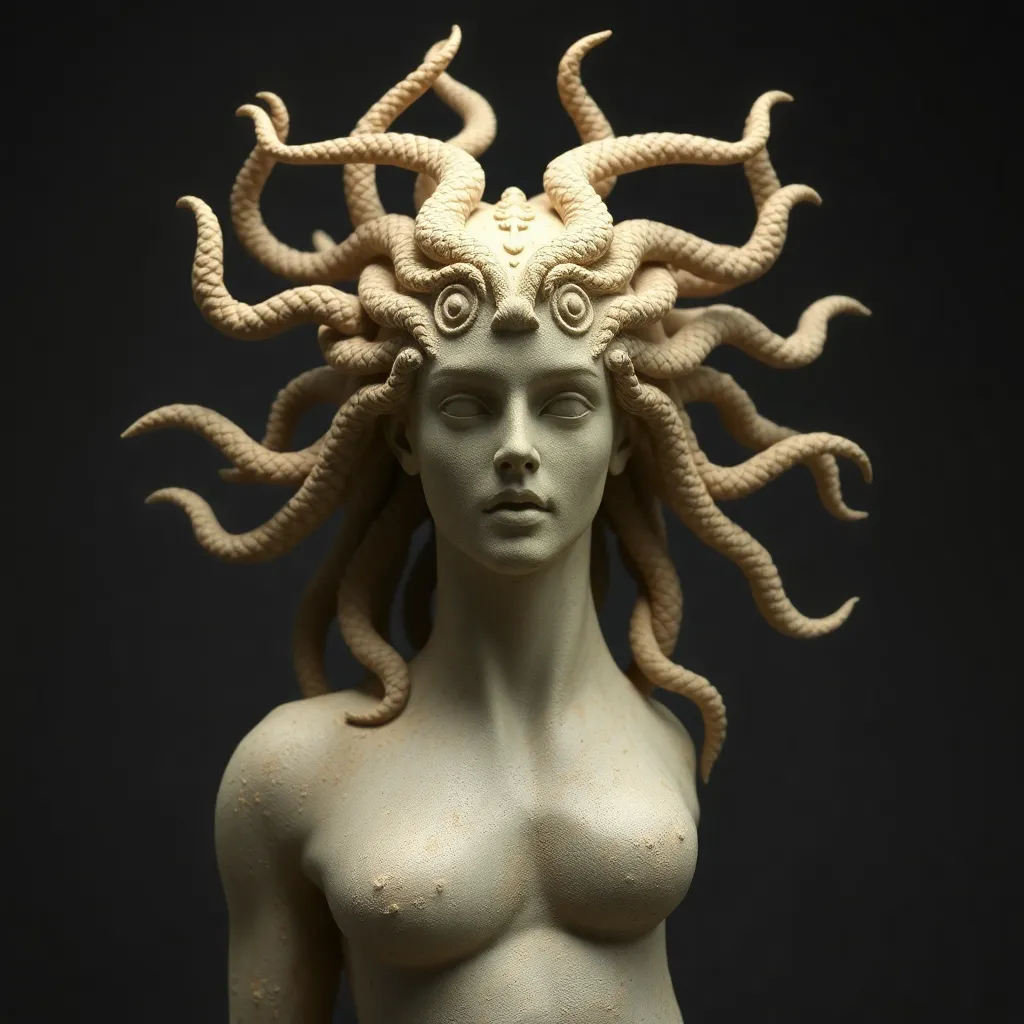The Medusa Myth in Folklore: Variations and Adaptations
I. Introduction
The myth of Medusa is one of the most compelling tales from ancient Greek mythology, encapsulating themes of transformation, beauty, and monstrosity. Medusa, a Gorgon known for her hair of snakes and the ability to turn onlookers to stone, has fascinated audiences for centuries. Her story transcends its origins, resonating with modern themes of empowerment and identity.
This article aims to explore the origins, symbolism, and adaptations of the Medusa myth, highlighting her significance in both ancient and contemporary contexts.
II. Origins of the Medusa Myth
Medusa’s myth has deep roots in Greek mythology, where she is one of the three Gorgon sisters, alongside Stheno and Euryale. Unlike her immortal sisters, Medusa is mortal, which adds layers of tragedy and complexity to her character.
Early literary references to Medusa can be found in works such as Hesiod’s “Theogony,” where she is described as a beautiful maiden transformed into a monster by Athena. This transformation is central to understanding her character, as it reflects the themes of victimization and subsequent monstrosity.
Artistic depictions of Medusa can be traced back to ancient pottery and sculpture, where she is often portrayed in a way that evokes both fear and fascination. These early representations helped establish her as an enduring figure in Greek art and mythology.
III. Medusa’s Symbolism and Themes
Medusa embodies several powerful themes that resonate through her myth:
- Transformation and Identity: Medusa’s transformation from a beautiful maiden to a monstrous figure symbolizes the loss of identity and the societal pressures that can lead to such a metamorphosis.
- Female Rage and Empowerment: Medusa’s rage, stemming from her victimization, serves as a powerful symbol of female anger and empowerment against patriarchal oppression.
- The Concept of Beauty and Monstrosity: Medusa challenges traditional notions of beauty, illustrating how society often defines women’s worth based on their appearance.
IV. Regional Variations of the Medusa Myth
Variations of the Medusa myth exist across different cultures, each offering unique interpretations:
- Ancient Greek vs. Roman Interpretations: While the Greeks viewed Medusa largely as a monster, the Romans often saw her as a protective figure, using her image to ward off evil.
- Eastern Folklore: In some Eastern traditions, similar figures to Medusa appear, often representing the duality of femininity as both nurturing and destructive.
- Cross-Cultural Comparisons: The theme of a monstrous female figure can be found in various mythologies, indicating a broader cultural archetype of the feminine as both powerful and dangerous.
V. Medusa in Contemporary Literature and Media
Medusa’s influence extends far beyond ancient texts, finding new life in contemporary literature and media:
- Modern Novels and Poetry: Authors such as Laura Shelley and Anne Carson have retold the Medusa myth, exploring her character’s depth and the implications of her transformation.
- Film and Television Adaptations: Medusa has appeared in various films and TV shows, often reinterpreted as a tragic figure rather than purely a monster, allowing audiences to engage with her story on a deeper level.
- Feminist Literature: Medusa’s story has seen a resurgence in feminist literature, serving as a metaphor for women’s struggles and the reclaiming of narrative power.
VI. Artistic Representations of Medusa
The representation of Medusa in art has evolved over the centuries:
- Classical Art: In ancient artworks, Medusa is depicted as a terrifying figure, often emphasizing her monstrous features to evoke fear.
- Contemporary Interpretations: Modern artists have reimagined Medusa in various forms, emphasizing her tragic backstory and exploring themes of empowerment and identity.
- Iconic Works: Notable works include Caravaggio’s “Medusa” and various sculptures that depict her as both a monster and a victim, highlighting the complexity of her character.
VII. The Role of Medusa in Feminist Discourse
In recent years, Medusa has emerged as a powerful symbol in feminist discourse:
- Symbol of Female Empowerment: Medusa’s transformation into a monster is often viewed as a response to male violence, making her a figure of empowerment for women reclaiming their narratives.
- Feminist Interpretations: Scholars and writers have analyzed Medusa’s myth through a feminist lens, exploring themes of victimization, anger, and resilience.
- Impact on Modern Movements: The Medusa myth has influenced modern feminist movements, inspiring discussions about the representation of women in society and the reclamation of female power.
VIII. Conclusion
The Medusa myth holds significant importance across cultures, symbolizing a range of themes from transformation to empowerment. Her story has evolved over time, reflecting societal changes and the ongoing struggle for female representation and rights.
Medusa’s enduring legacy continues to inspire artists, writers, and feminists, making her a relevant figure in contemporary society. As we delve into her myth, we uncover layers of meaning that resonate with our own experiences and challenges.
In today’s world, the story of Medusa serves as a potent reminder of the complexities of identity and the power of reclaiming one’s narrative amidst adversity.




